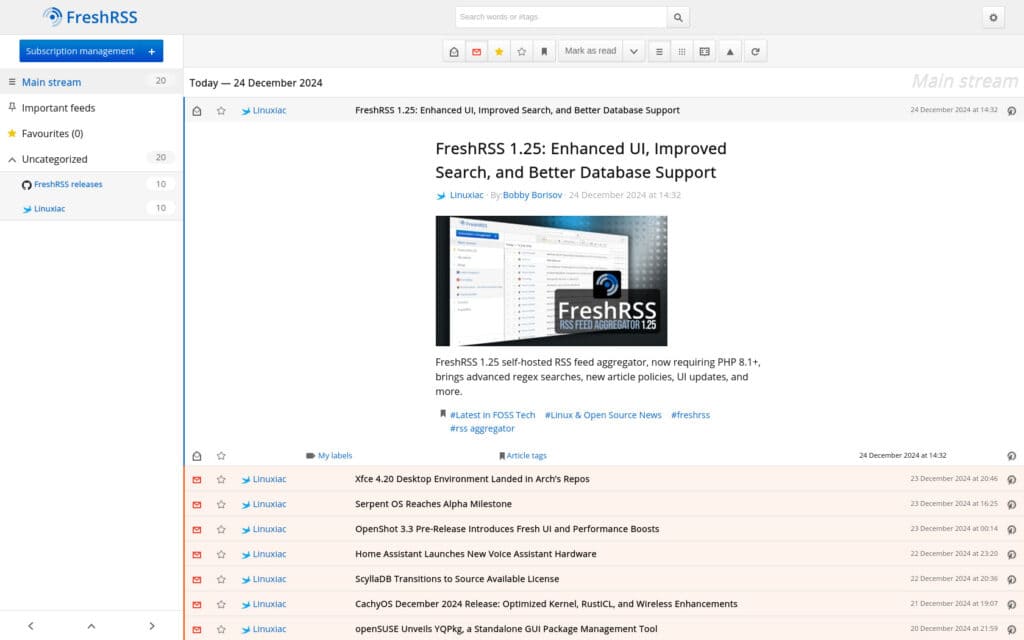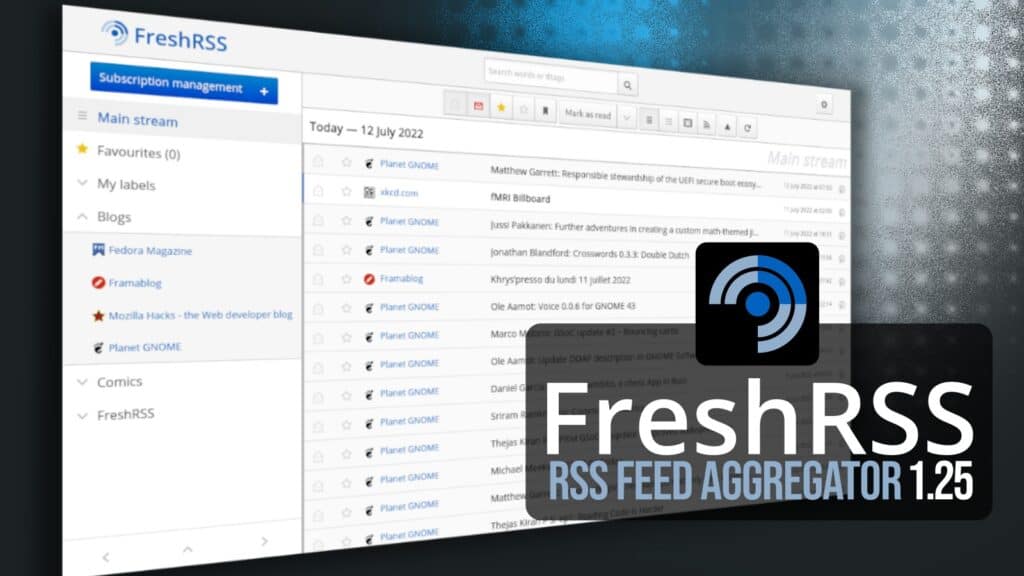The FreshRSS team has just unveiled version 1.25 of this popular self-hosted RSS feed aggregator, which includes many improvements and new features.
One of the most noteworthy changes is that FreshRSS now requires PHP 8.1+. In tandem with the PHP revision, the new release is now aligned with more recent database versions, mandating PostgreSQL 10+, MariaDB 10.0.5+, or MySQL 8+.
Beyond the enhanced technical foundation, FreshRSS 1.25 arrives with a suite of new features bound to catch the eye of dedicated RSS users. Perhaps the most significant addition is regex search, allowing for powerful filtering via regular expressions.
While some advanced regex syntax may differ depending on which database is used, FreshRSS’ filter actions continue to rely on the robust PHP PCRE2 syntax. This feature is particularly handy for complex searches and advanced content curation, making the reading experience more efficient.

Furthermore, searching for content becomes even more versatile with the introduction of dynamic search operators, such as in the example “search:UserQueryA date:P1d.” These operators give users a straightforward way to target specific time frames or content types, ensuring you can quickly sift through the data that truly matters.
Another highlight includes the HTML+XPath+JSON dot notation feed mode, which cleverly extracts structured information from within HTML content.
To improve performance and adhere to best practices, FreshRSS now supports HTTP response headers like “Cache-Control: max-age” and “Expires.” This update boosts server compatibility and optimizes caching, ensuring that feeds refresh more controlled.
In addition, fresh unicity policies and heuristics help reduce the hassle of duplicated articles when publishers provide flawed or inconsistent article IDs.
Additionally, for users who crave more control over their reading experience, the development team has introduced an option to automatically mark new articles as read if an identical title exists within the same category.
Another handy feature is the capacity to remove specific HTML elements via CSS selectors—even for articles not using full content—thus cleaning up cluttered feeds.
Of course, a big release would not be complete without some user interface polish. FreshRSS 1.25 adds a new UI feature to download a user’s SQLite database—or an SQLite export generated by the command line interface—making backups and data transfer more convenient than ever.
Improved reading options let you show unread articles alongside favorites, and a refreshed subscription management page boosts clarity for users juggling multiple feeds or categories.
Meanwhile, the Docker deployment strategies have been fine-tuned, aligning FreshRSS with more modern PHP and Alpine Linux versions. And with the refactored SimplePie integration, enthusiasts can look forward to improved feed parsing, upstream fixes, and better maintainability.
For a complete view of all changes, including bug fixes, UI tweaks, and code enhancements, check out the full changelog.

Merry Christmas 🎄